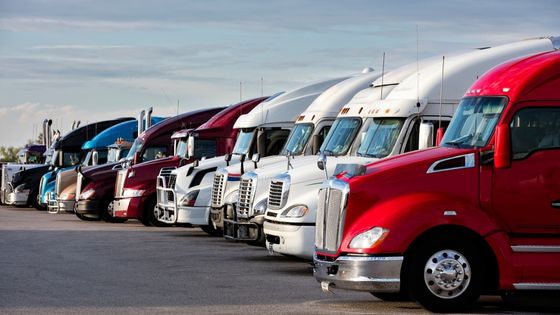The trucking industry supports the global economy by efficiently transporting goods and supplies to every part of the world. However, as the industry continues to grow and evolve, it faces various legal and ethical challenges that must be addressed to ensure its long-term success and sustainability. The trucking industry faces the challenge of navigating a complex and constantly evolving landscape of regulations and expectations to maintain its reputation and remain competitive. This includes navigating workplace safety, environmental impact, worker exploitation, and unethical business practices. Whether you are a trucking company, a driver, or a consumer, understanding the legal and ethical issues in the trucking industry is critical for navigating this dynamic and challenging industry.


10 Legal And Ethical Challenges Of The Trucking Industry
The transportation of goods over long distances is crucial to the global economy, and the trucking industry plays a vital role in making this possible. However, trucking is not immune to legal and ethical issues like any industry. From workplace safety to environmental impact, the trucking industry faces various challenges that require careful consideration and responsible action.
Workplace Safety
Workplace safety is one of the trucking industry’s most pressing legal and ethical issues. Extended working hours and prolonged driving periods often result in fatigue for truck drivers, increasing the risk of accidents. Therefore, trucking companies must take steps to ensure the safety of their drivers. This involves mandating rest breaks, monitoring driving hours, and offering proper training and equipment. Additionally, companies must also comply with Government regulations related to trucking. These Government bodies outline standards for commercial motor vehicles and drivers.
Environmental Safety
Another legal and ethical issue in the trucking industry is the impact of trucking on the environment. The transportation of goods by truck results in greenhouse gas emissions and air pollution, which can significantly affect the environment. Trucking companies must take steps to reduce their environmental impact. This can be achieved by using more fuel-efficient vehicles such as Tata SFC series trucks, adopting eco-friendly driving practices, and utilising alternative fuel sources.
Worker Exploitation
The trucking industry also faces legal and ethical challenges related to worker exploitation. Some trucking companies have been accused of using “independent contractor” status to avoid providing benefits and protections to their drivers. For instance, failing to pay the minimum wage and overtime pay, workers’ compensation, and unemployment insurance. Additionally, some companies have been accused of requiring drivers to work longer hours than the law. Thus, resulting in fatigue and increased risk of accidents. Trucking companies should treat their drivers fairly and in compliance with the law, and they are not exploiting workers for financial gain.
Unethical Business Practice
Another legal and ethical issue in the trucking industry is unethical business practices. For instance, price fixing and anti-competitive behaviour. Some companies in the highly competitive trucking industry have been accused of implementing procedures to limit competition and artificially raise prices. Such practices are illegal and unethical, and companies must comply with the law and ethical principles.
Technology
The trucking industry is facing legal and ethical challenges related to the use of technology. Companies must ensure responsible and ethical utilisation as technology becomes more prevalent in the industry. For instance, by protecting the privacy of their drivers and by complying with regulations related to data protection and cybersecurity. Additionally, companies must also ensure that they are using technology in a way that does not result in discrimination or unequal treatment of workers or customers.
Qualified Truck Drivers
Another area for improvement in the trucking industry is the need for qualified truck drivers. The demand for trucking services is increasing, but the supply of qualified drivers needs to catch up. This shortage can result in increased competition for qualified drivers, leading to higher wages and benefits. However, the pressure to cut costs can also lead trucking companies to hire unqualified or untrained drivers. Furthermore, increasing the risk of accidents and safety concerns. Therefore, trucking companies must invest in driver training and development programs to address this issue. Additionally, they should work with educational institutions and organisations to attract and retain qualified drivers.
Human Trafficking
Another legal and ethical challenge in the trucking industry is the issue of human trafficking. Transporting goods long distances allows human traffickers to exploit vulnerable individuals. For instance, migrant workers or individuals in desperate circumstances. Trucking companies must take serious steps to prevent human trafficking. For example, conducting background checks on employees, providing training on trafficking awareness, and reporting suspicious activity to law enforcement.
Use Of Electronic Logging Devices (ELDs)
Another legal and ethical challenge in the trucking industry is using electronic logging devices (ELDs). ELDs track the trucking hours and ensure that drivers only drive for what is allowed by law. However, they can also raise privacy concerns and be subject to hacking or other security risks. Therefore, trucking companies should use ELDs in a way that complies with privacy laws. Additionally, they should implement appropriate security measures to protect against hacking and other security risks.
Insurance
Addressing liability in case of accidents is another important challenge for the trucking industry. Trucking companies must secure insurance, establish swift response processes to accidents, and support those impacted. So, companies must also ensure they are taking steps to prevent accidents. For instance, conducting regular vehicle maintenance, implementing safe driving practices, and providing proper training to drivers.
Fairness And Equality
Finally, the trucking industry must also address the issue of fairness and equality. Trucking companies must ensure that they are not engaging in discriminatory practices, such as denying employment opportunities or promotions based on race, gender, or other factors. Additionally, companies must also ensure that they are paying their workers fairly and providing benefits that are commensurate with the work performed.
Conclusion
In conclusion, the trucking industry is a critical component of the global economy. However, the trucking industry must address various legal and ethical challenges to ensure its long-term success and sustainability. From environmental impact to worker exploitation, trucking companies must stay ahead of the competition by adhering to a complex landscape of regulations and expectations. By taking a proactive and responsible approach, trucking companies can demonstrate their commitment to ethical and sustainable business practices and set standards for the industry. Whether you are a trucking company, a driver, or a consumer, understanding the legal and ethical issues in the trucking industry is essential for navigating this dynamic and challenging industry and contributing to its continued growth and prosperity.









